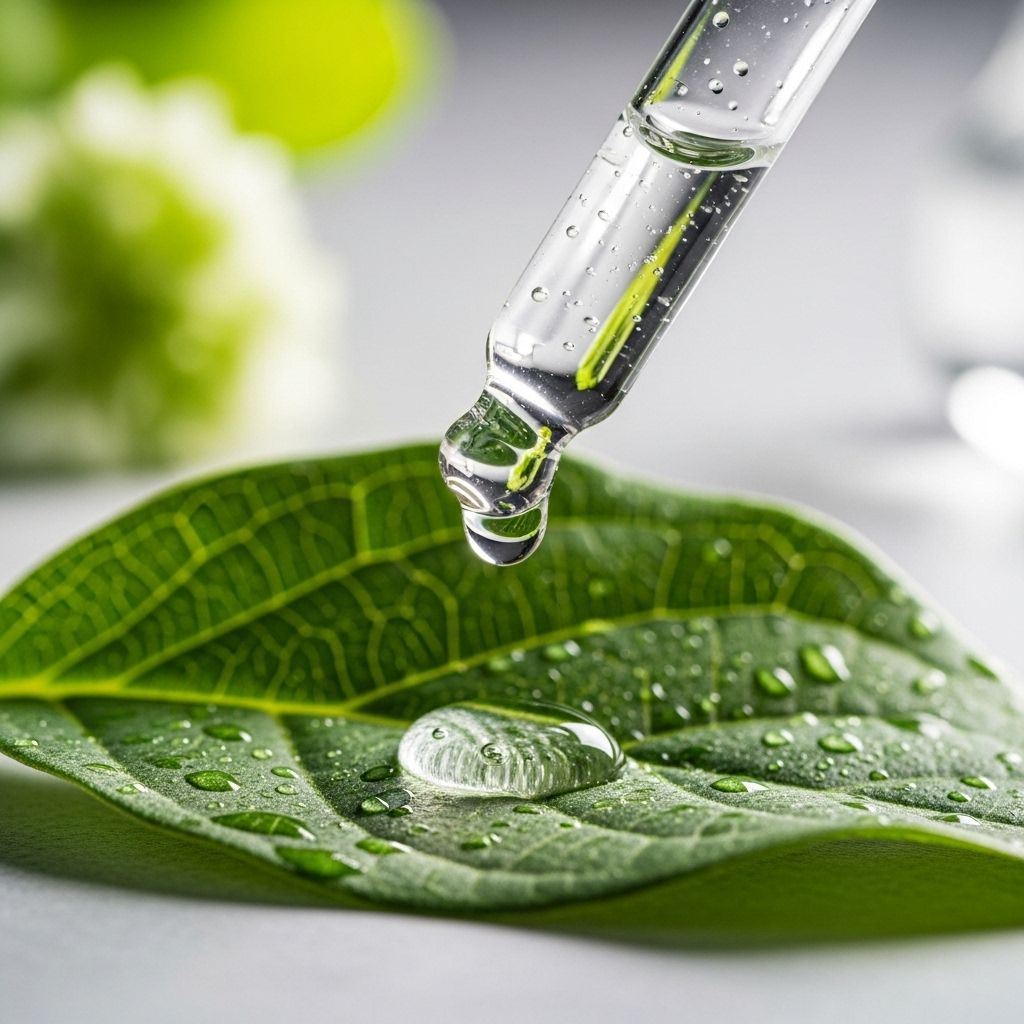Hyaluronic Acid: Benefits, Uses, and How It Transforms Your Skin
Discover how hyaluronic acid hydrates, plumps, and protects your skin for a youthful, radiant complexion.

What Is Hyaluronic Acid?
Hyaluronic acid (HA) is a naturally occurring sugar molecule found throughout the body, especially in the skin, eyes, and joints. It acts as a powerful humectant, meaning it draws and holds moisture, contributing to plump, hydrated skin. As we age, the body’s natural production of HA declines, leading to dryness, loss of elasticity, and the formation of fine lines and wrinkles.
How Does Hyaluronic Acid Work for Skin?
Hyaluronic acid’s unique ability to bind up to 1,000 times its weight in water makes it a skincare superstar. When applied topically—through serums, creams, or even injected as fillers—it replenishes moisture, supports the skin’s barrier, and provides a plumping effect that temporarily minimizes wrinkles and fine lines.
Top Benefits of Hyaluronic Acid for Skin
Intense Hydration
HA delivers deep, long-lasting hydration, making it ideal for dry, dehydrated, or mature skin types. Its moisture-binding properties help combat transepidermal water loss, keeping skin supple and resilient.
Reduction of Fine Lines and Wrinkles
By plumping the skin with moisture, HA reduces the appearance of fine lines and wrinkles, contributing to a smoother, more youthful complexion.
Enhanced Skin Elasticity and Firmness
While HA doesn’t replace lost elastin, it helps improve the appearance of skin tightness and firmness by supporting hydration and barrier function.
Smoother Skin Texture
Regular use of HA results in a softer, silkier skin texture. Its hydrating effects can also temporarily minimize the appearance of enlarged pores and create a more even skin tone.
Support for Skin Barrier Function
HA strengthens the skin’s lipid barrier, defending against environmental pollutants and irritants. A healthy barrier is crucial for preventing moisture loss, irritation, and sensitivity.
Skin Healing and Regeneration
HA plays a role in tissue repair and wound healing, helping to calm inflammation and promote healthier skin cell turnover.
Reduction in Pigmentation and Dark Spots
While not a direct treatment for pigmentation, hydration from HA can improve overall skin clarity and, when paired with ingredients like vitamin C, may help reduce the appearance of dark spots over time.
Clarity and Balance for Oily and Acne-Prone Skin
Contrary to common belief, oily and acne-prone skin also benefits from hydration. HA helps balance moisture levels, preventing excess oil production and breakouts.
How to Use Hyaluronic Acid in Your Skincare Routine
Choosing the Right Product
HA is available in serums, creams, gels, and even oral supplements. For topical use, look for serums or creams with a high concentration of HA and minimal added preservatives for maximum efficacy.
Application Tips
- After cleansing, apply HA serum to damp skin to lock in moisture.
- Follow with a moisturizer to seal in hydration.
- Use morning and night for best results.
- Layer with other actives like vitamin C for enhanced brightening and antioxidant protection.
Mixing and Matching with Other Ingredients
| Ingredient | Benefits When Paired | Example Products |
|---|---|---|
| Vitamin C | Brightening, antioxidant | Vitamin C serum, booster |
| Niacinamide | Soothing, barrier repair | Niacinamide serum |
| Retinol | Anti-aging, cell turnover | Retinol cream |
| Ceramides | Barrier support, hydration | Ceramide moisturizer |
Who Should Use Hyaluronic Acid?
Because of its gentle, hydrating nature, HA is suitable for all skin types—including sensitive, oily, and acne-prone skin. It’s especially beneficial for those with dryness, visible aging, or compromised skin barriers.
Potential Side Effects and Considerations
Hyaluronic acid is generally well-tolerated and rarely causes irritation. However, those with extremely sensitive skin should patch-test new products. Always use sunscreen during the day, as hydrated skin is more susceptible to sun damage if left unprotected.
Frequently Asked Questions (FAQs)
Q: Can hyaluronic acid cause breakouts?
HA is non-comedogenic and suitable for acne-prone skin. In fact, properly hydrated skin is less likely to overproduce oil and clog pores.
Q: How often should I use hyaluronic acid?
HA can be used daily, both morning and night, as part of your regular skincare routine.
Q: Can I use hyaluronic acid with retinol?
Yes, HA can help counteract the drying effects of retinol, making them an effective combination for anti-aging.
Q: Does hyaluronic acid work for all ages?
Absolutely—HA benefits both young and mature skin by maintaining hydration and promoting a healthy complexion.
Q: Can I use hyaluronic acid if I have oily skin?
Yes, HA helps balance moisture levels and can reduce excess oil production in oily skin types.
Conclusion
Hyaluronic acid is a foundational skincare ingredient celebrated for its unparalleled hydrating properties, anti-aging benefits, and compatibility with all skin types. Whether you’re combating dryness, fine lines, or simply seeking a healthier glow, incorporating HA into your routine can transform your skin’s texture, resilience, and appearance. For best results, pair it with complementary actives, stay consistent, and always protect your skin with sunscreen.
References
- https://cosmedica-skincare.com/pages/10-benefits-of-hyaluronic-acid
- https://www.medicalnewstoday.com/articles/hyaluronic-acid-benefits
- https://www.healthline.com/health/beauty-skin-care/hyaluronic-acid
- https://my.clevelandclinic.org/health/articles/22915-hyaluronic-acid
- https://pmc.ncbi.nlm.nih.gov/articles/PMC12026949/
- https://www.webmd.com/beauty/benefits-hyaluronic-acid
- https://www.cerave.com/ingredients-in-cerave/hyaluronic-acid
- https://www.health.harvard.edu/blog/the-hype-on-hyaluronic-acid-2020012318653
- https://pmc.ncbi.nlm.nih.gov/articles/PMC10078143/
Read full bio of Sneha Tete












